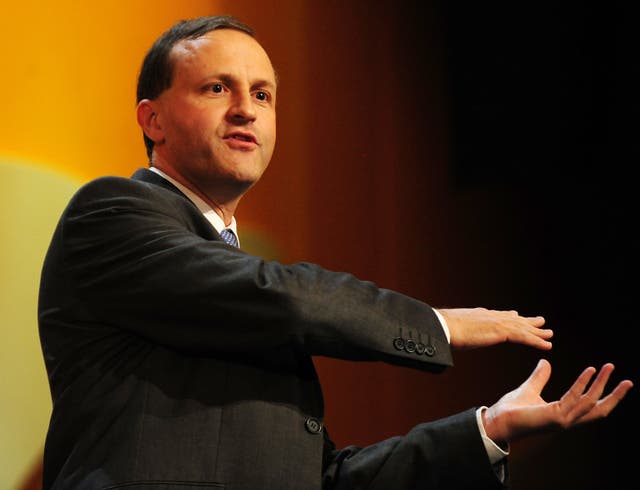Criticism over letters asking bereaved relatives to return pension overpayments
Sir Steve Webb said the letters from the Department for Work and Pensions do not make clear that repaying the money is voluntary.

Letters sent to bereaved relatives asking them to return pension payments made in error do not make clear it is optional, a former pensions minister has said.
Sir Steve Webb said the letters from the Department for Work and Pensions (DWP) do not make clear that repaying the money is voluntary.
The DWP overpaid more than £500 million of state pension and pension credit payments into accounts of those who had died over five years, and recovered around half of it.

These direct payment after death (DPAD) overpayments happen if the DWP is not notified of the death in time to stop a payment.
Though they are treated as non-recoverable and are not enforceable by law, the DWP can request the money back as a voluntary payment and says it has a responsibility to taxpayers to attempt to claim it back.
Because the DWP makes pension payments four weeks in arrears, payments can be made that relate to a period after the recipient’s death, Sir Steve told the PA news agency.
“It’s not a blunder, it’s just a feature of the system,” he said.
“The question is, what should happen then?
“And the bit that struck me as odd is that DWP try to get the money back, but don’t have a legal right to insist.”
Sir Steve, now a partner at pension consultants LCP (Lane Clark & Peacock), sent a freedom of information request to obtain a copy of the letter that is sent to reclaim overpayments.
“Nowhere does it say that this is voluntary,” he said.
The letter has an FAQ section but none of the questions in it are “Do I have to do this?”, Sir Steve noted.
He added: “And the result, I fear, is that it’s a lottery, and the losers of the lottery are people who are intimidated or frightened or upset by a letter.
“You know, they’ve just been bereaved.
“They get a letter from the Government demanding hundreds of pounds back, and they just send it because they think they have to.
“They don’t want, you know, they perhaps fear a knock at the door kind of thing, whereas other people, who perhaps are aware they don’t have to pay it back or just choose not to, don’t.”
Either the law should state that everyone is obligated to pay the money back or the Government should stop requesting repayments altogether, Sir Steve said.
“This kind of halfway house of … we know that it’s not mandatory when we send the letters, but we’re not going to tell you … that doesn’t seem right to me.”
The DWP acknowledged that there is no legal obligation to repay such overpayments but said it has a responsibility to attempt to recover the funds.
A DWP spokesperson said: “It is not our intention to cause distress, however, we have a responsibility to taxpayers to recover overpayments. We acknowledge this is not always possible.
“Whilst there is no legal obligation to repay a debt of this type, we recognise some people will be willing to repay money to which there was no entitlement. We provide full contact details and encourage anyone with concerns to call us.”
It is understood that no further letters are issued requesting payment if the DWP does not receive a response and that an initial recovery is attempted from the bank where the payment was made or from the deceased’s next of kin.





